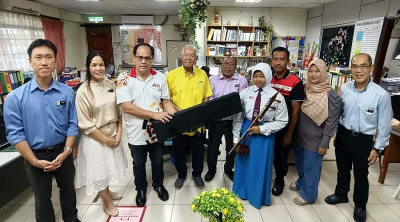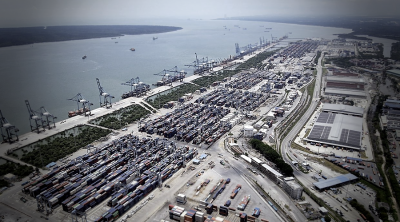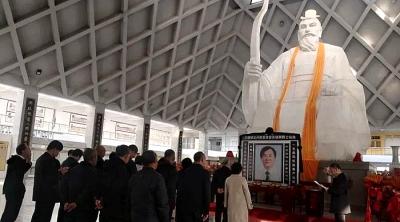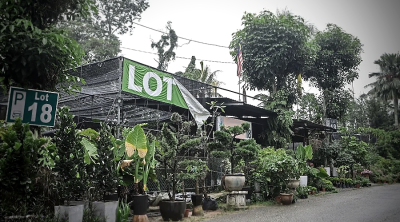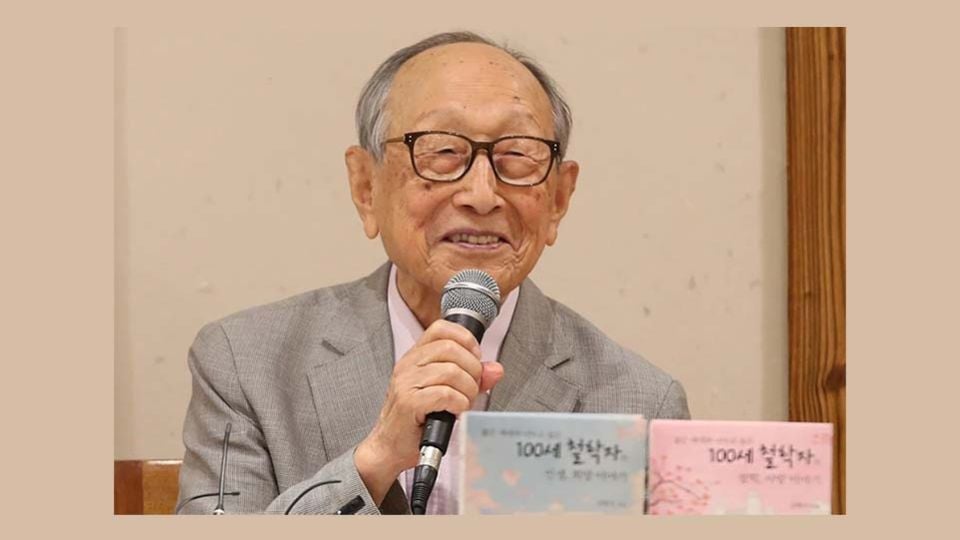
SEOUL : When does a person grow old? Only when you let the thought, “I’m old now,” take over. The mind itself never ages, says Kim Hyung-seuk, the world’s oldest living author.
Born on July 6, 1920, Kim, who turned 105 this year, has lived long enough to see his literary legacy set a world record.
Last year, Guinness World Records recognised the Yonsei University emeritus professor of philosophy as the world’s oldest male author for his book “Kim Hyung-seuk, 100 Years of Wisdom,” confirming his age at 103 years and 251 days at the time.
At a press conference last week, he arrived with a new book in hand, effectively surpassing his own record. His latest, “Kim Hyung-seuk, A Hundred Years of Legacy,” reflects on what it means to be human across a century of upheaval.
“The book I published last year was written with readers in their 50s and older in mind,” Kim said. “But my publisher told me many people in their 30s were reading it, too. So this time, I made sure there were things young people might find meaningful.”
“Looking back, what truly matters is the effort you make to cultivate yourself,” he added. “Life is about nurturing yourself, about allowing the heart to grow.”
Kim spoke in an even, gentle cadence as he revisited the long arc of his life. As a child, he was frail; his mother prayed that he survive to 20. Now past 100, he remains active on television, the lecture circuit and in writing, making the question he fields most often a predictable one: What is the secret to your health?
On that, he noted similar traits among his seven friends who lived past 100: “They didn’t speak ill of others, and they didn’t lose their temper. Criticizing or losing one’s temper is a sign of emotional fragility.”
“If I had to give advice, it would be to stay young at heart, to hold a sound faith and to live without despair.”
Kim’s life traces the fault lines of modern Korean history. Born in Unsan, North Pyongan Province, under Japanese colonial rule, he grew up in Songsan-ri, Daedong County; was inspired by independence activist Ahn Chang-ho’s preaching; studied alongside poet Yoon Dong-ju; and even overlapped in elementary school with North Korea’s future founder Kim Il-sung, sharing breakfast at his home after liberation. He fled the North in 1947, taught at a middle and high school, and joined Yonsei University’s philosophy faculty in 1954, where he taught for 31 years.
Having experienced nearly every form of society, he said he has reached one conclusion: Societies that uphold freedom ultimately prevail.
“I lived a quarter of my life under Japanese rule. I felt then that if you do not live in your own country, you have nothing, no hope. After liberation, I realised that unless we built a proper nation, there would be no meaning to life. My dream was to raise students who were better than myself and build a healthy nation with them.”
Asked about artificial intelligence, Kim offered a humanistic caution.
“In the natural sciences or engineering, a question has one correct answer. AI can help with that. In the social sciences, a question may have several answers, and society must decide what is reasonable. But in the arts and humanities, there is never a single right answer.”
Thus, AI should remain a tool. “If we can preserve three things — distinguishing truth from falsehood, discerning good from evil through conscience, and remembering that human beings are the purpose — we will be fine.”
In his book, he writes about hope — planting an apple tree even if the world ends tomorrow, as Spinoza urged. This is why he continues to lecture, write columns and publish books well past 100. Education, he believes, is where the future’s hope lies.
“Do I still have hope?” he writes. “For the past hundred years, hope lay before me. Now, my time is drawing to a close. But a greater hope remains for Korea’s younger generations, my students and their students. My hope is for them.”
ADVERTISEMENT
ADVERTISEMENT













